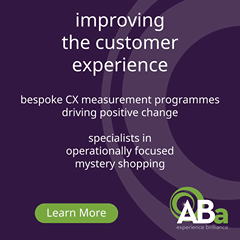[People Matter] Navigating financial wellbeing in the retail sector
Part 4: Welcome to another episode in our wellbeing series where we delve deep into a topic ‘Nurturing financial wellness: A lifeline for retail employees.
As the unyielding cost of living crisis persists, retailers are awakening to the profound impact it’s having on their workforce and stepping up to provide solutions. But what exactly is “financial wellbeing”? Let’s delve into the intricacies!
Cracking the Code: Deciphering Financial Wellbeing
Beyond the digits on a paycheck, financial wellbeing encompasses a holistic view of an individual’s financial health and security. It’s the prowess to adeptly manage finances, confidently plan for the future, and navigate unexpected financial challenges with resilience.
Facing the reality: The impact of the cost of living crisis
Over half of retail workers—52%—are grappling with the weight of the rising cost of living, as revealed by a Retail Trust report. This reality manifests as increased staff theft, mental health struggles, and confrontations with customers. Financial institution Claro Money’s wellbeing division has published a report on the effects of money worries for retail workers – 73% of retail workers feel negatively about their finances but only 15% are offered financial wellbeing benefits by their employer, compared to 36% of employees in accounting, banking and finance. This is despite 75% of staff wanting more support with their personal finances.
It’s a call to action, evident in the 28% rise in financial aid applications (with The Retail Trust) and a staggering 195% surge in visits to online financial health support.
Forging a new path: Crafting a future of wellbeing
The journey ahead transcends mere numbers; it’s about shaping a brighter future for retail employees. Financial wellbeing isn’t a luxury; it’s an imperative. A robust financial wellness strategy is a cornerstone of the broader workplace wellbeing puzzle, linking productivity, staff retention, and fewer absences. In the realm of retail dynamics, challenges abound. Shift-based industries create hurdles for budgeting due to fluctuating earnings and irregular income streams. Financial stress on front-line employees affects customer-facing environments, impacting both performance and satisfaction.
Retailers are rising to the challenge.
Tesco’s initiatives, such as multi-skilled training, deal & discounts highlighting savings opportunities and advanced pay access, translate financial literacy into informed decisions.
Tesco’s Natasha Rice, People Director – Group Reward and Recognition, emphasises that their financial wellbeing strategy, a core part of their colleague EVP since 2018, laid the groundwork for increased efforts in 2022 to aid colleagues during the cost-of-living crisis. It’s these proactive endeavors that propel the retail industry toward a more financially resilient future.
Asda is prioritising financial wellbeing for its 140,000+ staff through a partnership with Wagestream, a financial wellbeing app. The app empowers employees to manage their earnings and expenses in real-time, offering access to up to 50% of their earned contracted pay on demand. It also provides tools for budgeting, savings, and financial education.
Asda’s Chief People and Corporate Affairs Officer, Hayley Tatum, highlights, “We are always looking at ways we can help and giving our employees flexible access to their pay, alongside a range of support and guidance through the Wagestream app could prove vital in giving them financial peace of mind as well as their mental wellbeing.”
This initiative complements Asda’s recent £141 million investment to raise hourly pay for retail colleagues by 10%.
In 2021, Halfords rolled out flexible pay as part of a financial wellbeing programme to its 10,000 employees. Read more.
Championing financial wellbeing: A playbook in 5 Steps
For retailers, the potential to elevate employees’ financial wellbeing is immense. Here’s a playbook to guide you:
- Smart education: Equip your team with workshops and seminars on budgeting, investing, saving, and retirement planning. Empower them with the tools needed to master their finances.
- Financial perks: Strengthen financial security through offerings like retirement plans, life insurance, and health savings accounts, laying a stable foundation for the future.
- Savings incentives: Encourage savings by matching retirement plan contributions or offering discounts on financial planning services. Transform savings into an engaging pursuit.
- Debt distress support: Offer resources for debt management, loan consolidation, and repayment plans, acting as a financial superhero sidekick during tough times.
- Cultivating financial wellness: Foster an environment where money conversations are encouraged. Applaud wise financial choices and extend support to those in need.
The message resounds clear: the retail sector acknowledges the urgency of financial wellbeing, kvelling a path toward a more secure and supported workforce.
——————
Catch up on other episodes in this Wellbeing series:
Part 1: Creating an awesome vibe with wellbeing
Part 2: Riding the wellbeing wave



![[People Matter] Navigating financial wellbeing in the retail sector](images/loader.gif)










